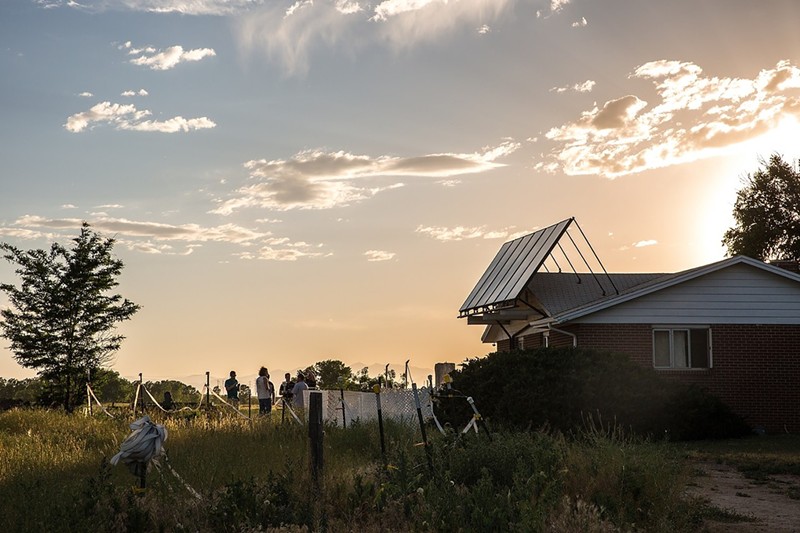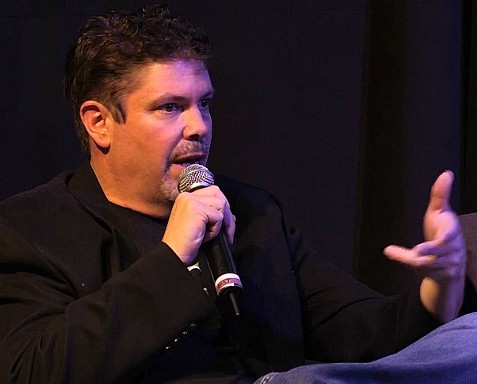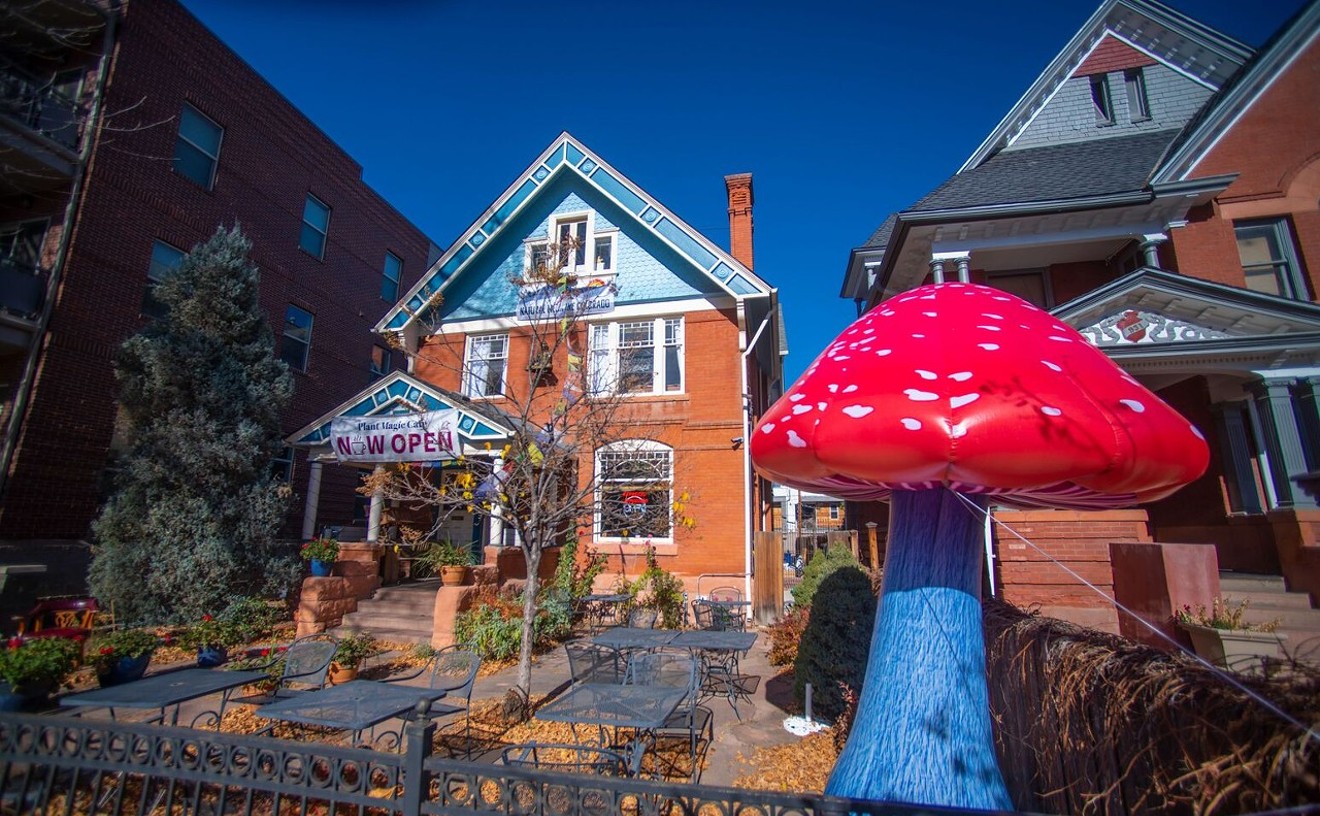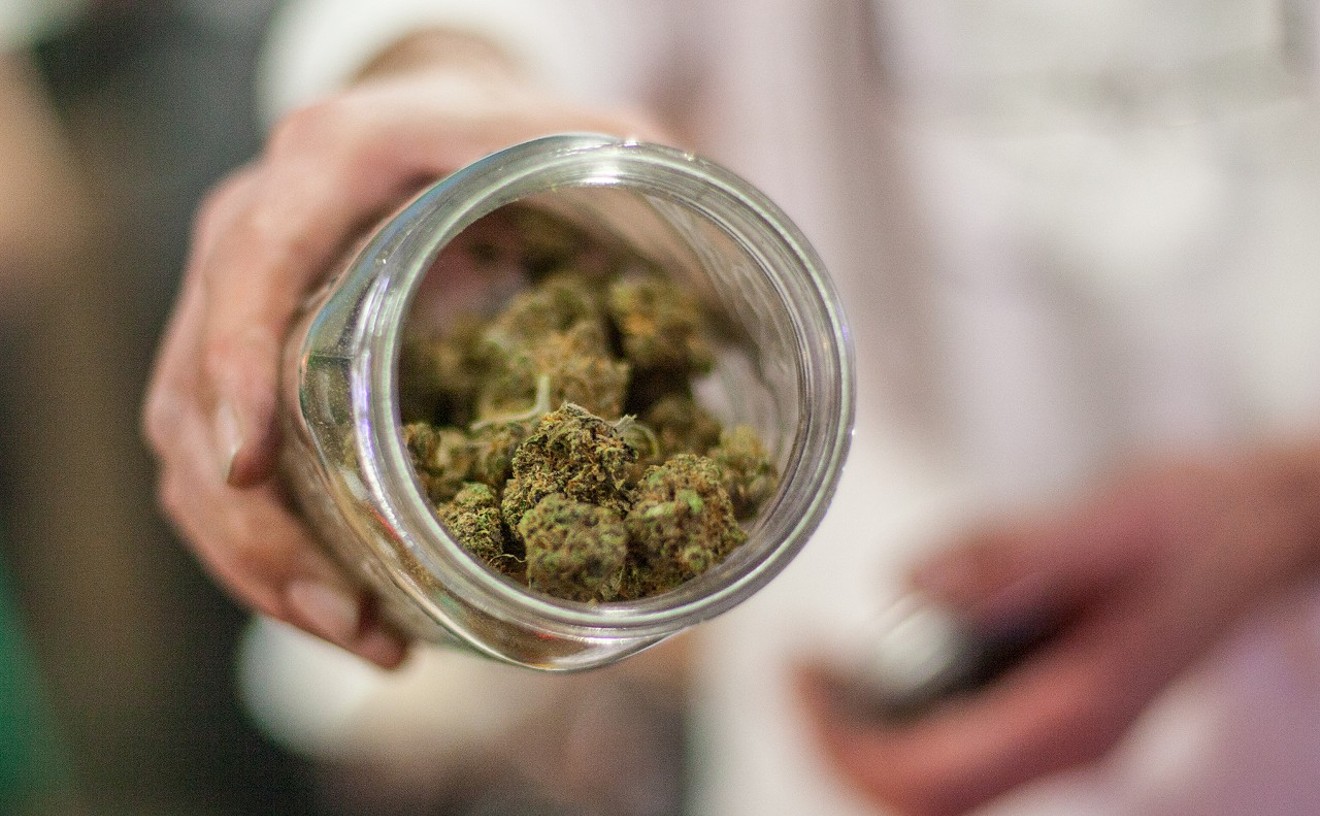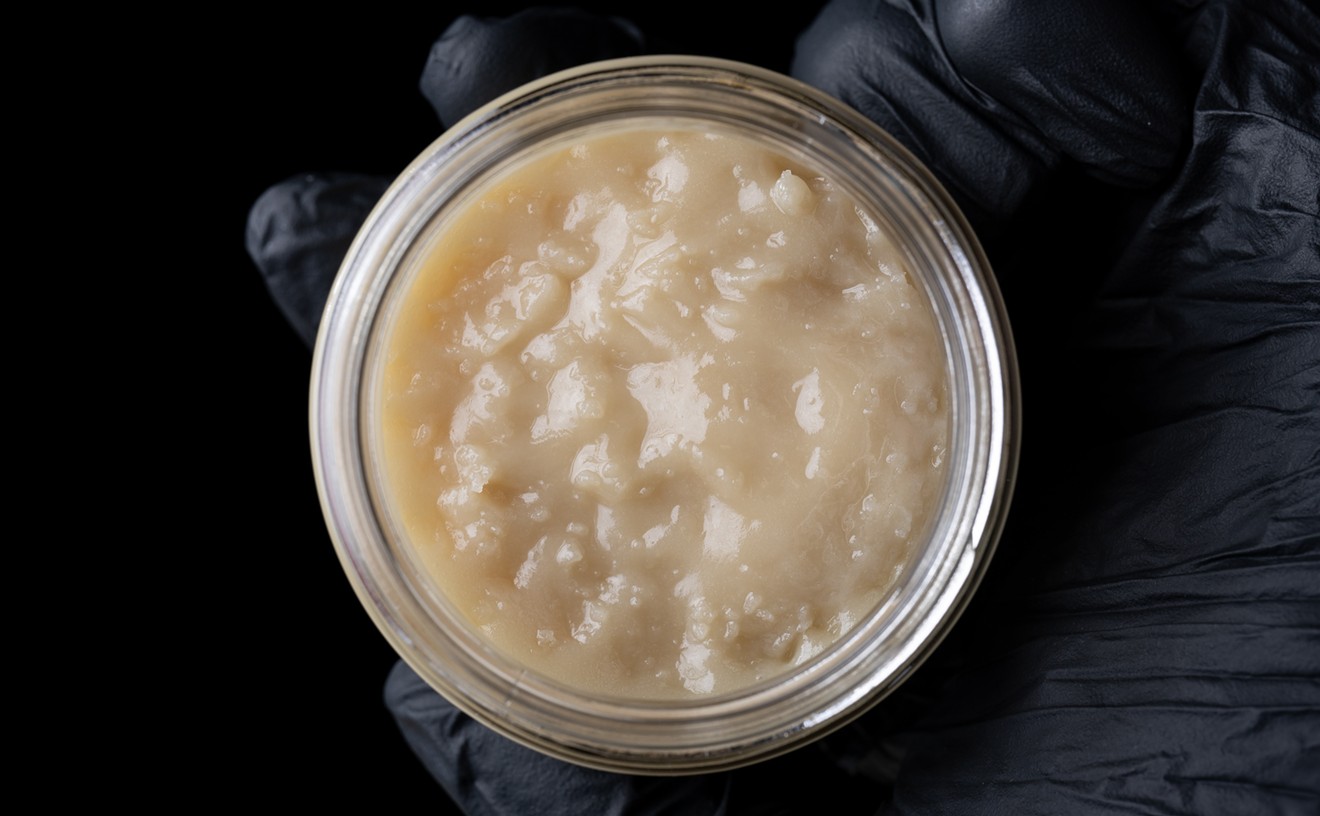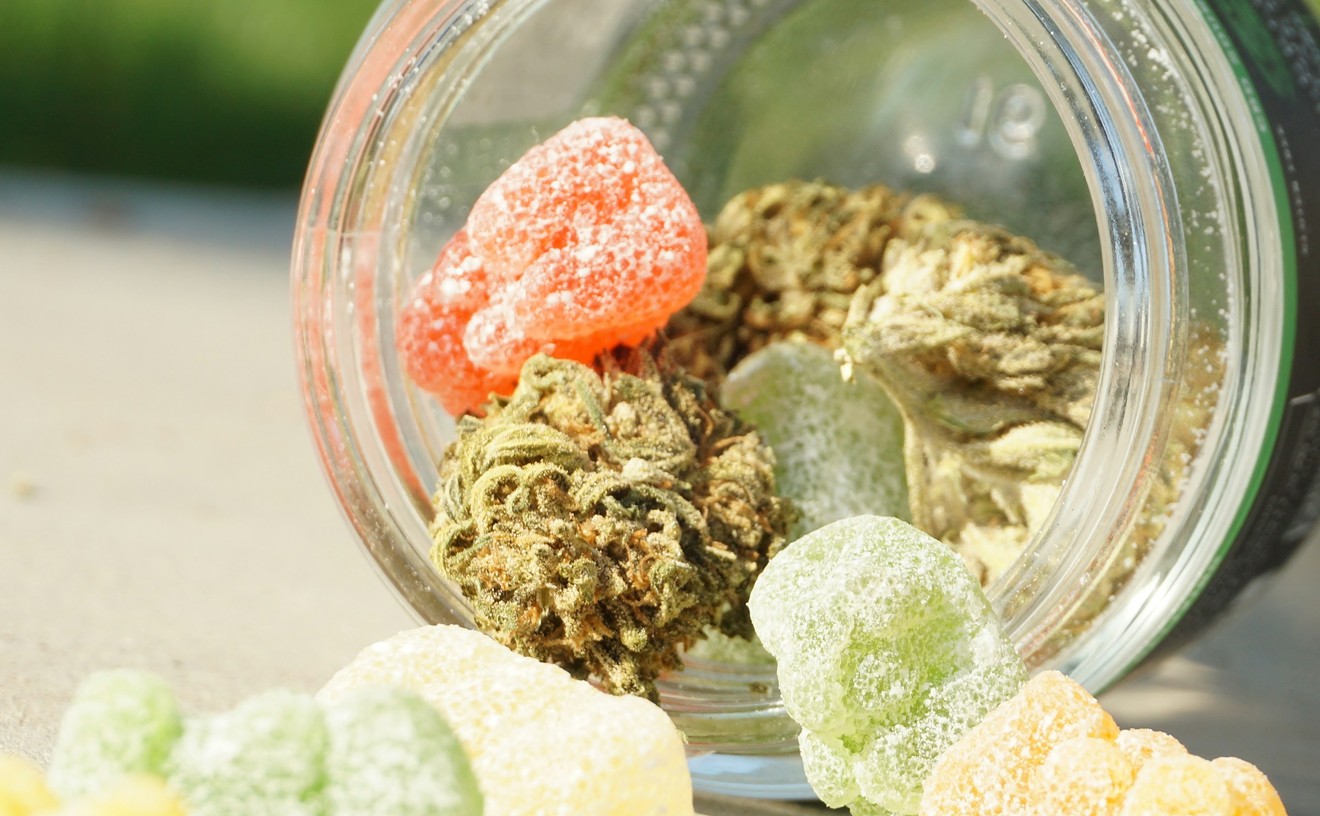Hemp is where it's at right now, especially in Colorado. Legal cannabis is cool and all — and we welcome Michigan and Vermont to the recreational party in 2019 — but that's so 2015 in this state.
More about substance than style, industrial hemp's many uses were finally recognized by the federal government in December, when President Donald Trump officially legalized it by signing the 2018 Farm Bill. Now that the plant is out from under the shadow of the Controlled Substances Act, it's regulated by the Department of Agriculture and legal to farm in all fifty states.
But that doesn't mean that growing hemp is just like growing tomatoes. The USDA's regulations for farming hemp will be much more strict than they are for other crops, while the Food and Drug Administration will oversee how cannabidiol (CBD) from hemp is added to food and other products intended for human consumption. Colorado doesn't necessarily have to follow those rules, however, since it legalized adult-use cannabis cultivation in 2012 and subsequently implemented laws allowing the sale of hemp- and CBD-infused foods within the state.
To predict what legalized hemp will mean in the new year, we checked in with Morris Beegle, former music promoter, founder of the NoCo Hemp Expo and an expert on the past, present and future of the hemp industry.
Westword: What are some of the most interesting ways that hemp can be used for commercial or medical purposes?
Morris Beegle: My favorite uses of hemp really come down to the fiber side of the plant, for building materials, bio-plastics, composites and nano-fiber technology that can be implemented into energy storage devices. This is where I think hemp will have the greatest impact on our planet and society in the long term.
Can you and I just grow hemp in our back yards now that the Farm Bill passed? How does that work?
We could grow hemp, but it technically would not be legal to do so. To grow hemp, one has to be registered with a state department of agriculture. Will that change in the future? I hope so, as hemp should be treated like any other traditional agriculture crop.
How do you see national legalization affecting Colorado's hemp industry, which has been up and running for several years now?
It puts us in a great situation, as we have been at the forefront of the industry since Ryan Loflin grew the first official hemp crop in fifty-plus years back in 2013. Colorado will remain a leader in production, technology and innovation surrounding hemp for years to come.
Colorado has a relatively large number of hemp farmers compared to the rest of the country, but what about testing labs, processors and manufacturers, and other hemp businesses?
Currently, we are at the top of the heap in all these areas. Colorado has developed a pretty robust industry, with major brands and processors being located here. Having legal medical and recreational cannabis has helped foster the Colorado hemp industry to be a domestic leader in these areas.
What other states or regions do you expect to benefit from hemp's legalization?
There will be a lot of states that benefit from this, particularly those that have a politically supportive climate for hemp. Kentucky, Oregon, Tennessee and New York should all prosper. And once California gets their shit together, they could be a major force to be reckoned with.
There's a lot of confusion about what the Farm Bill did for CBD. What is CBD's legal status with the federal government? Did the Farm Bill change anything?
The Farm Bill removed hemp and all parts, cannabinoids, extracts and derivatives from the Controlled Substances Act, which includes CBD, or cannabidiol. This is huge for the industry. The intent of the legislation is clear that all parts of the plant are now legal and that the Drug Enforcement Administration no longer has any jurisdiction over hemp.
However, the Food and Drug Administration will be involved from a regulatory standpoint regarding food and supplements. How this will all play out is yet to be determined, but there is no arguing the significance of this legislation and what it means for the future of hemp in the United States.
[
{
"name": "Air - MediumRectangle - Inline Content - Mobile Display Size",
"component": "12017618",
"insertPoint": "2",
"requiredCountToDisplay": "2",
"watchElement": ".fdn-content-body",
"astAdList": [
{
"adType": "rectangle",
"displayTargets": "mobile"
}
]
},{
"name": "Editor Picks",
"component": "17242653",
"insertPoint": "4",
"requiredCountToDisplay": "1",
"watchElement": ".fdn-content-body",
"astAdList": [
{
"adType": "rectangle",
"displayTargets": "desktop|tablet"
},{
"adType": "rectangle",
"displayTargets": "desktop|tablet|mobile"
}
]
},{
"name": "Inline Links",
"component": "18838239",
"insertPoint": "8th",
"startingPoint": 8,
"requiredCountToDisplay": "7",
"maxInsertions": 25
},{
"name": "Air - MediumRectangle - Combo - Inline Content",
"component": "17261320",
"insertPoint": "8th",
"startingPoint": 8,
"requiredCountToDisplay": "7",
"maxInsertions": 25,
"watchElement": ".fdn-content-body",
"astAdList": [
{
"adType": "rectangle",
"displayTargets": "desktop|tablet"
},{
"adType": "rectangle",
"displayTargets": "desktop|tablet|mobile"
}
]
},{
"name": "Inline Links",
"component": "18838239",
"insertPoint": "8th",
"startingPoint": 12,
"requiredCountToDisplay": "11",
"maxInsertions": 25
},{
"name": "Air - Leaderboard Tower - Combo - Inline Content",
"component": "17261321",
"insertPoint": "8th",
"startingPoint": 12,
"requiredCountToDisplay": "11",
"maxInsertions": 25,
"watchElement": ".fdn-content-body",
"astAdList": [
{
"adType": "leaderboardInlineContent",
"displayTargets": "desktop|tablet"
},{
"adType": "tower",
"displayTargets": "mobile"
}
]
}
]

